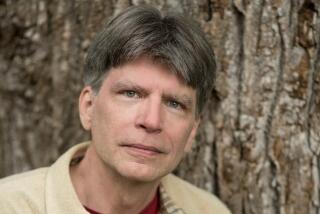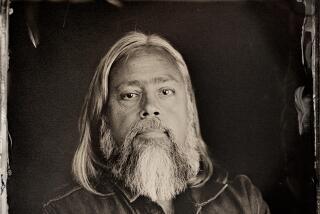‘Exiles in the Garden’ by Ward Just
Exiles in the Garden
A Novel
Ward Just
Houghton Mifflin Harcourt: 280 pp., $25
Ward Just left an active life as a journalist, serving as a distinguished reporter in Washington and Vietnam, to dedicate himself to fiction. Over the last 39 years he has written 15 novels and two collections of short stories.
He uses mostly public affairs and those who perform and misperform them as his subjects, giving readers the confidence that the intricate contentions of his legislators, officials and diplomats are a reliable and reliably wry portrait of how their world runs.
He bears some resemblance to Anthony Trollope, who made politics the leitmotif for his Palliser novels, and another kind of public life -- the Church of England Establishment -- in the Barchester cycle. But the comparison goes only partway. Trollope’s novels are graceful excavations as well as landscapes; Just’s are mainly landscapes. His characters lead us agreeably along their surface without producing a great deal of astonishment. Oh, so that’s how it is, a reader may think, rather than oh, that’s who I am.
His new “Exiles in the Garden” shows Just’s strengths along with some of his weaknesses. Set mostly in Washington, it provides shrewd observations about that stiflingly self-centered capital and its public ways and private folkways.
Even better, by setting a handful of expatriates there, Just, who lives much of the time in France, writes perceptively about the contrast between European and American values. Best of all is the epigrammatic quality his writing achieves, which compensates for a fairly wan story, more retrospect than present action, and characters whose talk has more life than they do.
Take Lucia, the young Swiss wife of Alec Malone, a Washington photographer. She hasn’t much character herself, and before she has a chance to develop one she runs back to Europe with a fiery Hungarian writer. But how well she sees the nation’s capital. “Lucia thought the city blanched, an overcooked vegetable.” Sharing her distaste with a Swedish friend she recalls the fun she and Alec used to have in London with their circle of actors, artists and agreeable layabouts: “There are no layabouts in Washington.”
No indeed. The city, caught up in the politics of the Vietnam War, has always been entirely purposeful. And ruthless beneath that, another European remarks. “Washington may not be vulgar but it is unspeakably violent. And not only on the streets.”
Alec is the center of the novel, but only in the sense that the hole is the center of the doughnut. His father was a nine-term senator, a man of forceful backstage maneuver, ever since he served Franklin Roosevelt, with “his marbled Hudson River voice” as Capitol Hill ally and ax-man.
His son rejects the father’s wish that he follow his aggressive political path. Instead he becomes a newspaper photographer, a profession that also puts him at the heart of egos and ambitions. But here again he turns his back on engagement and confrontation, rejecting a coveted assignment to Vietnam in favor of photographing speeches and profile subjects. Later he quits journalism to shoot Hollywood stills and artistic essays.
Photography glorifies and therefore doesn’t belong in a war zone, he argues priggishly and inconsistently (he praises Mathew Brady and Robert Capa). In fact, as he acknowledges in reviewing his work toward the end of his life, he had sedulously avoided conflict, unlike his father. And unlike Lucia’s father, Andre, a Czech who appears in the last chapters.
Andre is a scarred veteran of partisan warfare in Yugoslavia, and later of 10 years in the Soviet gulag. His life has been a series of indomitable confrontations; yet when Alec confesses the insufficiency of his own avoidance life, Andre brushes such regret aside. His own rigors were not chosen but forced on him, he insists; and Just gives his words referring to himself in the second person a stoic power:
“Your world is vanishing before your eyes without the slightest indication that anything you do will reverse the tide. Stop the rot. Make it cease. So you went to war and learned how to do it in the way that a carpenter learns how to make a chair.”
Alec listens, perhaps learns, yet he remains as formless as ever. Just seems to have attempted a contemporary version of Robert Musil’s Celebrated Man without Qualities. He has not managed, though, to make a character out of this lack.
Eder, a former book critic of The Times, was awarded a Pulitzer Prize for criticism in 1987.
More to Read
The biggest entertainment stories
Get our big stories about Hollywood, film, television, music, arts, culture and more right in your inbox as soon as they publish.
You may occasionally receive promotional content from the Los Angeles Times.










